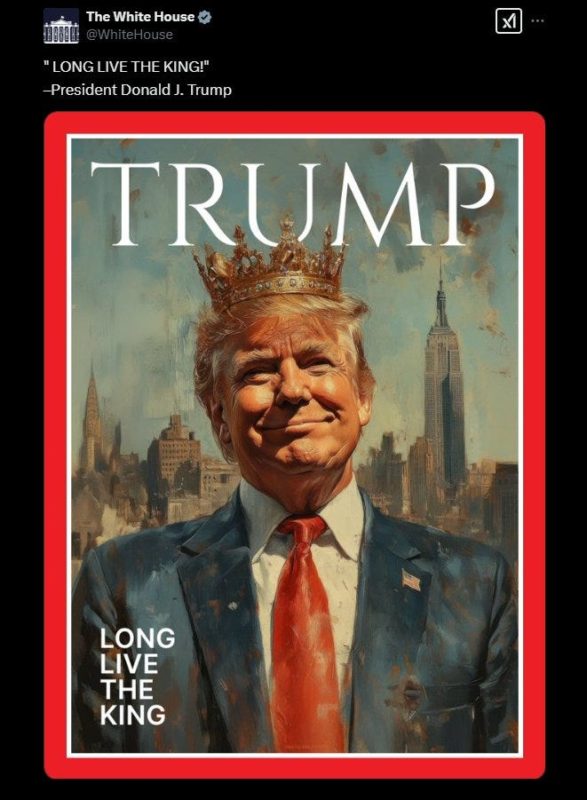2.28 David Brooks on PBS: “I was nauseated, just nauseated. All my life, I have had a certain idea of about America, that we’re a flawed country, but we’re fundamentally a force for good in the world, that we defeated Soviet Union, we defeated fascism, we did the Marshall Plan, we did PEPFAR (President’s Emergency Plan for AIDS Relief) to help people live in Africa. And we make mistakes, Iraq, Vietnam, but they’re usually mistakes out of stupidity, naivete and arrogance. They’re not because we’re ill-intentioned. What I have seen over the last six weeks is the United States behaving vilely, vilely to our friends in Canada and Mexico, vilely to our friends in Europe. And today was the bottom of the barrel, vilely to a man who is defending Western values, at great personal risk to him and his countrymen. Donald Trump believes in one thing. He believes that might makes right. And, in that, he agrees with Vladimir Putin that they are birds of a feather. And he and Vladimir Putin together are trying to create a world that’s safe for gangsters, where ruthless people can thrive. And we saw the product of that effort today in the Oval Office. . . . Am I feeling grief? Am I feeling shock, like I’m in a hallucination? But I just think shame, moral shame. It’s a moral injury to see the country you love behave in this way.”
2.28 David Frum in The Atlantic: “Today’s meeting gave the lie to any claim that this administration’s policy is driven by any strategic effort to advance the interests of the United States, however misguided. Trump and Vance displayed in the Oval Office a highly personal hatred. There was no effort here to make a case for American interests. Vance complained that Zelensky had traveled to Pennsylvania to thank U.S. ammunition workers, because, Vance charged, the appearance amounted to campaigning for the Democratic presidential ticket. “Let me tell you, Putin went through a hell of a lot with me,” Trump angrily explained. “He went through a phony witch hunt where they used him and Russia, Russia, Russia.” Both the president and vice president showed the U.S.-led alliance system something it needed urgently to know: The national-security system of the West is led by two men who cannot be trusted to defend America’s allies—and who deeply sympathize with the world’s most aggressive dictator.”
 2.28 Peter Baker in the New York Times: “The verbal brawl in the Oval Office on Friday between President Trump and President Volodymyr Zelensky of Ukraine startled Washington, unnerved Europe, outraged Kyiv and delighted Moscow. By the end, the Ukrainian ambassador to Washington had her head in her hands in dismay. But what really seemed to get under Mr. Trump’s skin during the discussion-turned-donnybrook were Mr. Zelensky’s harsh words about President Vladimir V. Putin of Russia. Mr. Trump, who had nothing but good things to say about the master of the Kremlin, seemed offended on his behalf and scolded Mr. Zelensky for hostility toward the man who had invaded his country. “He hates us,” Mr. Zelensky told Mr. Trump, trying to explain that Mr. Putin was the aggressor, not the victim. “It’s not about me. He hates Ukrainians. He thinks we are not a nation.” While Mr. Trump last week falsely said that Ukraine “started” the war, Mr. Zelensky made clear that the president had that exactly wrong. “Putin began this war,” the Ukrainian leader said. Mr. Trump did not concur, and proceeded to chide Mr. Zelensky for being mean. “It’s wonderful to speak badly about somebody else,” said Mr. Trump, scorn in his voice, “but I want to get it solved.” Mr. Trump, who has been known to speak badly about plenty of somebody-elses, including Mr. Zelensky, whom he called a “dictator” just last week, offered no sympathy for the Ukrainian view. “This is not a love match,” he said, making clear he considered Mr. Zelensky to blame. “This is why you’re in this situation.” A few moments later, Mr. Zelensky again cited Mr. Putin’s role in the war and suggested that Mr. Trump was listening to the Russian leader too much. In response to Mr. Trump’s comment that Ukrainian cities were destroyed, Mr. Zelensky said no, they had survived despite Russian bombardment. “Maybe it’s Putin who’s sharing this disinformation that he destroyed us,” Mr. Zelensky said. Mr. Trump came to Mr. Putin’s defense. “He had to suffer through the Russia hoax,” he said, referring to the investigation during his first term into Russian interference on Mr. Trump’s behalf during the 2016 election. “I think that he wants to make a deal and he’d like to see an end.” In fact, the investigation by the special counsel Robert S. Mueller III was no hoax and concluded definitively that Mr. Putin ordered an intelligence operation to tilt the election eight years ago to Mr. Trump. Although Mr. Mueller said in his final report in 2019 that “the evidence was not sufficient to support criminal charges,” he made clear that Mr. Trump’s campaign benefited from Russian assistance. The Oval Office meeting on Friday soon degenerated into a virtual showdown as Vice President JD Vance dispensed with any formalities and accused Mr. Zelensky of being “disrespectful” by offering the Ukrainian view of the war and what would be required for peace in the Oval Office with news cameras present. From there, Mr. Vance and Mr. Trump pummeled Mr. Zelensky for being insufficiently grateful, while he tried to get a word in. Never in the past few decades at least has a president engaged in such an angry, scathing attack on a visiting foreign leader in the Oval Office. Their argument culminated with a threat that if Mr. Zelensky did not accept whatever peace deal Mr. Trump brokered with Russia, the United States would abandon Ukraine. The fracas led Mr. Trump to kick Mr. Zelensky out of the White House. The schism upended plans to sign a deal giving the United States rights to Ukrainian rare minerals, a concession Mr. Trump had demanded as payback for help with the war. Mr. Trump often exhibits anger in public in ways other presidents have rarely done. . . .But he has never appeared so enraged and combative with a foreign visitor, especially a putative ally in the middle of a war for his country’s survival. The closest analogy might be a few meetings he had with congressional Democrats during his first term when he quarreled with Nancy Pelosi, the House speaker at the time, and Senator Chuck Schumer, the Democratic majority leader. At one of them, in fact, Ms. Pelosi famously stood, pointed a finger at him and snapped, “All roads with you lead to Putin.”’
2.28 Peter Baker in the New York Times: “The verbal brawl in the Oval Office on Friday between President Trump and President Volodymyr Zelensky of Ukraine startled Washington, unnerved Europe, outraged Kyiv and delighted Moscow. By the end, the Ukrainian ambassador to Washington had her head in her hands in dismay. But what really seemed to get under Mr. Trump’s skin during the discussion-turned-donnybrook were Mr. Zelensky’s harsh words about President Vladimir V. Putin of Russia. Mr. Trump, who had nothing but good things to say about the master of the Kremlin, seemed offended on his behalf and scolded Mr. Zelensky for hostility toward the man who had invaded his country. “He hates us,” Mr. Zelensky told Mr. Trump, trying to explain that Mr. Putin was the aggressor, not the victim. “It’s not about me. He hates Ukrainians. He thinks we are not a nation.” While Mr. Trump last week falsely said that Ukraine “started” the war, Mr. Zelensky made clear that the president had that exactly wrong. “Putin began this war,” the Ukrainian leader said. Mr. Trump did not concur, and proceeded to chide Mr. Zelensky for being mean. “It’s wonderful to speak badly about somebody else,” said Mr. Trump, scorn in his voice, “but I want to get it solved.” Mr. Trump, who has been known to speak badly about plenty of somebody-elses, including Mr. Zelensky, whom he called a “dictator” just last week, offered no sympathy for the Ukrainian view. “This is not a love match,” he said, making clear he considered Mr. Zelensky to blame. “This is why you’re in this situation.” A few moments later, Mr. Zelensky again cited Mr. Putin’s role in the war and suggested that Mr. Trump was listening to the Russian leader too much. In response to Mr. Trump’s comment that Ukrainian cities were destroyed, Mr. Zelensky said no, they had survived despite Russian bombardment. “Maybe it’s Putin who’s sharing this disinformation that he destroyed us,” Mr. Zelensky said. Mr. Trump came to Mr. Putin’s defense. “He had to suffer through the Russia hoax,” he said, referring to the investigation during his first term into Russian interference on Mr. Trump’s behalf during the 2016 election. “I think that he wants to make a deal and he’d like to see an end.” In fact, the investigation by the special counsel Robert S. Mueller III was no hoax and concluded definitively that Mr. Putin ordered an intelligence operation to tilt the election eight years ago to Mr. Trump. Although Mr. Mueller said in his final report in 2019 that “the evidence was not sufficient to support criminal charges,” he made clear that Mr. Trump’s campaign benefited from Russian assistance. The Oval Office meeting on Friday soon degenerated into a virtual showdown as Vice President JD Vance dispensed with any formalities and accused Mr. Zelensky of being “disrespectful” by offering the Ukrainian view of the war and what would be required for peace in the Oval Office with news cameras present. From there, Mr. Vance and Mr. Trump pummeled Mr. Zelensky for being insufficiently grateful, while he tried to get a word in. Never in the past few decades at least has a president engaged in such an angry, scathing attack on a visiting foreign leader in the Oval Office. Their argument culminated with a threat that if Mr. Zelensky did not accept whatever peace deal Mr. Trump brokered with Russia, the United States would abandon Ukraine. The fracas led Mr. Trump to kick Mr. Zelensky out of the White House. The schism upended plans to sign a deal giving the United States rights to Ukrainian rare minerals, a concession Mr. Trump had demanded as payback for help with the war. Mr. Trump often exhibits anger in public in ways other presidents have rarely done. . . .But he has never appeared so enraged and combative with a foreign visitor, especially a putative ally in the middle of a war for his country’s survival. The closest analogy might be a few meetings he had with congressional Democrats during his first term when he quarreled with Nancy Pelosi, the House speaker at the time, and Senator Chuck Schumer, the Democratic majority leader. At one of them, in fact, Ms. Pelosi famously stood, pointed a finger at him and snapped, “All roads with you lead to Putin.”’
2.28 Former Biden aide Mark LaRosa: “The president’s team was scared to death of impromptu, unscripted, unrehearsed, unpracticed, unchoreographed, anything, they couldn’t compete for the attention economy. They just couldn’t do it. They didn’t have any idea. And they didn’t have the vessel either in Biden, by the way, who would have done anything. He loves TV. He loves doing stuff. It was the orbit that did not trust their own candidate. Biden needed the press. When he needed them the most, they didn’t trust him, they gave him the back foot of the doubt and they put their foot on the gas and never took it off. And he was politically dead.”
2.27 Chez Pierre in Wilton. Meh.
2.26 According to the Washington Post, over the last 20 years, Elon Musk and his businesses have received at least $38 billion from the government in contracts, loans, subsidies and tax credits.
2.25 James Carville in the Times: “With no clear leader to voice our opposition and no control in any branch of government, it’s time for Democrats to embark on the most daring political maneuver in the history of our party: roll over and play dead. Allow the Republicans to crumble beneath their own weight and make the American people miss us. Only until the Trump administration has spiraled into the low 40s or high 30s in public approval polling percentages should we make like a pack of hyenas and go for the jugular. Until then, I’m calling for a strategic political retreat. . . .Instead of gearing up to fight them — as we love to do — the most radical thing we can do is nothing at all. Let the Republicans disagree with themselves publicly. Do not offer a single vote. Do not insert yourself into the discourse. Do not throw a monkey wrench into the equation. Simply step away and let them flirt with a default. Just when they’ve pushed themselves to the brink and it appears they could collapse the global economy, come in and save the day. Be the competent party and not the chaos party. House Democrats know this. It’s time for everyone in our party, including the darlings who want to run in 2028, to understand this as well. ”
2.26 Gene Hackman, 95, is found dead, along with his wife and dog.
2.25 Diana Taurasi retires from the WNBA. During her career, she won three WNBA championships, three NCAA titles at UConn, six Euroleague titles playing in Russia and Turkey, and six Olympic gold medals. She was the 2009 WNBA MVP, a two-time WNBA Finals MVP, a three-time Euroleague MVP, and a three-time Russian League Player of the Year.
2.25 Jonathan Chiat in The Atlantic: Musk is wreaking havoc on government effectiveness for approximately zero benefit. His most sweeping method of culling the workforce—terminating probationary employees—is worse than random firings, because probationary employees include some longtime civil servants who have recently been promoted, which means many of the highest performers. Contrary to DOGE’s inflated claims, the group’s gross savings so far, which are concentrated in the minority of the budget that is domestic discretionary spending, amount to a rounding error. And because DOGE has turned its metaphorical chain saw upon the IRS, crippling the government’s ability to collect revenue, the net fiscal effect of Musk’s reign of terror may well wind up increasing the deficit. There’s a reason that none of the innumerable budget experts who have studied the deficit have proposed anything resembling what DOGE has come up with. By almost any ideological standard, it is the worst possible approach.
2.24 CNN: Six weeks into the experiment, people who drive into Manhattan at peak hours are . . .experiencing less gridlock; pedestrians and cyclists are safer; and the city is hitting its revenue targets — a crucial part of the plan to address badly needed repairs to public transit.
2.24 Al Trautwig dies at 68.
2.24 Roberta Flack dies at 88.
2.22 Trump on Truth Social. “ELON IS DOING A GREAT JOB, BUT I WOULD LIKE TO SEE HIM GET MORE AGGRESSIVE,”
2.22 Ross Douthat in the Times: “[I]t’s worth drawing some lessons from the Bush era that might apply to Trump and Elon Musk and other would-be counterrevolutionaries today. The first lesson is not to overread your mandate. Bush-era conservatism built its strong position on one overriding issue — destroying Al Qaeda and killing terrorists — joined to a broader affect of patriotism and religious piety, with moderate stances on government spending and the welfare state. It lost its mandate by expanding the War on Terror from Afghanistan to Iraq, from counterterrorism to nation-building, and also by opening its second term, after an election fought on foreign policy and same-sex marriage, by launching a doomed attempt to remake Social Security. In each case, an unrealistic ideological vision triumphed, and a broader conservative opportunity was lost. Today, Trump-era conservatism has a clear mandate to restrict immigration, fight inflation and wage war on D.E.I., and an arguable mandate in other areas, like the quest for some kind of armistice in Ukraine. It has no obvious mandate for making deep cuts to Medicaid, among other ideas that congressional Republicans are entertaining, or cutting federal funding for the National Park Service or Alzheimer’s research (to pick two examples of recent federal work force cuts from Musk’s Department of Government Efficiency). In those areas and others, the administration risks reverting to the anti-government style of Republican politics that Trump himself originally defeated, and persuading Americans once again that the right can’t be trusted with ordinary stewardship. This connects to the second lesson: If you change it, you own it. . . .There are unquestionably many places in the federal leviathan where a ruthless outsider might bring about a necessary revolution. But the would-be reformers need to be aware that their efforts will be judged on performance in a crisis, not just cost savings on a spreadsheet. Maybe that means an outbreak of disease testing a reshaped Centers for Disease Control and Prevention, or a Hurricane Katrina-level crisis testing a decentralized version of FEMA. Maybe it just means some unlooked-for failure of administration, akin to the botched Obamacare rollout, in the health or education bureaucracy.”
 2.21 At the CPAC convention, Steve Bannon did this. “I do it at the end of all of my speeches to thank the crowd,” Bannon said.
2.21 At the CPAC convention, Steve Bannon did this. “I do it at the end of all of my speeches to thank the crowd,” Bannon said.
2.21 The Yankees remove their facial hair prohibition, will now allow beards.
2.21 Matteo Wong in The Atlantic: “No matter DOGE’s goal, putting so much information in one place and under the control of a small group of people with little government experience has raised substantial security concerns. As one recently departed federal technology official wrote in draft testimony for lawmakers, which we obtained, “DOGE is one romance scam away from a national security emergency.”
2.21 According toThe Internationalists by Oona Hathaway and Scott Shapiro, there were more than 150 territorial conquests between 1816 and 1945. Since 1945, with the international system of rules and norms the United States helped create, territorial “conquests have almost completely disappeared.” Fareed Zakaria in the Washington Post: “Thanks to Donald Trump’s personal pique, this enduring American achievement is about to be lost.”
2.20 Andreas Kluth on Bloomberg: Foreign policy has become a theater of the absurd, with Trump’s minions taking on starring roles. “At one end of the spectrum are functionaries looking to save or advance their careers who go along with whatever nonsense the leader spouts, even if it contradicts tenets and values which they once held deeply. Secretary of State Marco Rubio springs to mind. Playing Talleyrand to Trump’s Napoleon, this former Russia hawk now parrots the president’s whims. At the other end are acolytes, henchmen or zealots vying for the leader’s favor by stretching rhetoric to ever greater extremes.”
2.20 On Connor McDavid‘s goal in overtime, Canada beats the US 3-2 to win the Four Nations Face Off. Justin Trudeau: “You can’t take our country, and you can’t take our game.”
2.20 Philip Bump in the Washington Post: “Only 45 percent of Americans approve of the job he’s doing. The same percentage approves of his handling of the economy, formerly one of Trump’s strongest measurements. But those topline numbers fail to capture an important factor: Support for Trump and his policies is heavily dependent on support from members of his party. This isn’t exactly surprising given the extent to which Trump has long centered his politics on the priorities of his base and given his base’s broad enthusiasm for any- and everything Trump does. It’s nonetheless worth pointing out because non-Republican Americans are almost universally opposed to what Trump is doing.”
2.19 Bloomberg: The administration argues that reduced regulations and a more efficient government will produce sufficient economic growth to pay for tax cuts. It’s also threatening to add tariffs on key trade partners, and argues that they won’t hurt cost consumers and domestic producers. “None of this is likely,” writes Allison Schrager. “Yes, the government needs to cut waste and excessive regulations, and some tax cuts will boost growth. But even in the best-case scenario, the added growth wouldn’t be enough to make them pay for themselves, let alone cover the unfunded entitlements coming due in the next decade.” In fact, the administration’s failure to acknowledge tradeoffs is reminiscent in some ways of the Biden government, which thought it could spend trillions of dollars to stimulate the economy in 2021 without boosting inflation. Another problem with the House budget plan, according to Kathryn Edwards, is that it seeks to pay for the tax cuts by cutting spending, including to people that need it. The House GOP has characterized potential changes to Medicaid not exactly as cuts, but as efforts to reduce waste, fraud and abuse, and Speaker Mike Johnson has portrayed the efforts as a way to get people working. But semantics aside, Kathryn says that the budget and the GOP comments reflect a fundamental “misunderstanding of poverty” — namely, that poor people get too much help from the government and don’t work. “These myths aren’t true, which means that instead, policy needs to address the economic and labor market shortcomings that generate poverty and hardship,” Kathryn writes.
2.19 Microsoft says it has developed an “entirely new state of matter” that will make meaningful quantum computing available.
 2.19 Trump administration revokes federal approval for congestion pricing. Less than an hour later, MTA officials file a federal lawsuit arguing the Trump administration was unlawfully attempting to reverse approval of the program. Trump on Truth Social: “CONGESTION PRICING IS DEAD. Manhattan, and all of New York, is SAVED. LONG LIVE THE KING!” Kathy Hochul: “New York hasn’t labored under a king in over 250 years, and we sure as hell are not going to start now. The streets of the city where battles were fought, we stood up to a king, and we won then. In case you don’t know New Yorkers, when we’re in a fight, we do not back down — not now, not ever.”
2.19 Trump administration revokes federal approval for congestion pricing. Less than an hour later, MTA officials file a federal lawsuit arguing the Trump administration was unlawfully attempting to reverse approval of the program. Trump on Truth Social: “CONGESTION PRICING IS DEAD. Manhattan, and all of New York, is SAVED. LONG LIVE THE KING!” Kathy Hochul: “New York hasn’t labored under a king in over 250 years, and we sure as hell are not going to start now. The streets of the city where battles were fought, we stood up to a king, and we won then. In case you don’t know New Yorkers, when we’re in a fight, we do not back down — not now, not ever.”
2.19 Thomas L. Friedman in the Times: “Oxford University economist Eric Beinhocker got my attention when we were talking the other day with the following simple statement: “No country in the world alone can make an iPhone.” Think about that sentence for a moment: There is no single country or company on earth that has all the knowledge or parts or manufacturing prowess or raw materials that go into that device in your pocket called an iPhone. Apple says it assembles its iPhone and computers and watches with the help of “thousands of businesses and millions of people in more than 50 countries and regions” who contribute “their skills, talents and efforts to help build, deliver, repair and recycle our products.” We are talking about a massive network ecosystem that is needed to make that phone so cool, so smart and so cheap. And that is Beinhocker’s point: The big difference between the era we are in now, as opposed to the one Trump thinks he’s living in, is that today it’s no longer “the economy, stupid.” That was the Bill Clinton era. Today, “it’s the ecosystems, stupid.” Listen a bit to Beinhocker. . . .In the real world, he argues, “There is no such thing as the American economy anymore that you can identify in any real, tangible way. There’s just this accounting fiction that we call U.S. G.D.P.” To be sure, he says, “There are American interests in the economy. There are American workers. There are American consumers. There are firms based in America. But there is no American economy in that isolated sense.” The old days, he added, “where you made wine and I made cheese, and you had everything you needed to make wine and I had everything I needed to make cheese and so we traded with each other — which made us both better off, as Adam Smith taught — those days are long gone.” Except in Trump’s head. Instead, there is a global web of commercial, manufacturing, services and trading “ecosystems,” explains Beinhocker. “There is an automobile ecosystem. There’s an A.I. ecosystem. There’s a smartphone ecosystem. There’s a drug development ecosystem. There is the chip-making ecosystem.” And the people, parts and knowledge that make up those ecosystems all move back and forth across many economies.”
 2.19 Trump on Truth Social: “A Dictator without Elections, Zelenskyy better move fast or he is not going to have a Country left.”
2.19 Trump on Truth Social: “A Dictator without Elections, Zelenskyy better move fast or he is not going to have a Country left.”
2.18 Kathryn Edwards on Bloomberg: “Americans are not torn about how the government should deal with the building crisis in Social Security. Quite the opposite. In overwhelming numbers across political parties, ages and demographics, Americans want Congress to raise revenue to preserve benefits. They are more than fine with paying higher taxes to shore up the program. That’s according to a new survey from the National Academy of Social Insurance. The findings were clear: No cuts and no big changes to how the program works. Just fund it. . . .By opting for reform packages, respondents reveal the policies they favor the strongest. The winner by far was to eliminate or increase the taxable earnings cap, which is $176,100 and rises each year with the average growth in wages. Doing so could address up to 70% of the long-term shortfall. Also strongly favored: Not changing the retirement age; Making the cost of-living adjustment reflect elderly spending patterns, rather than average spending patterns; Allowing people in physical jobs to claim retirement at younger ages with less of a penalty; Raising the payroll tax rate. Combine these ideas with a few other tweaks to Social Security and the survey revealed a reform package that 82% of Americans favor over the status quo — all while flipping the long-term financing shortfall into a surplus. Not only that, but this solution is favored by 74% of Republicans, 79% of individuals in households with incomes higher than $150,000 and 81% of individuals aged 21 to 34. No partisan divide, no class divide, no intergenerational tug of war — just a universal desire to fund Social Security.”
2.18 Former Brazilian president Jair Bolsonaro is charged with leading an extensive plot to overthrow the government after his 2022 electoral loss,
2.18 Bloomberg: “Dismantle the global trading system, turn America’s friends into enemies, tax its consumers and sink its producers in a permanent fog of uncertainty: This is not a winning formula.”
 2.18 Big day for Susan Morrison.
2.18 Big day for Susan Morrison.
2.17 Bret Stephens in the Times: “Putin being invited to the United States is the equivalent of FDR receiving Hitler in Hyde Park sometime after Hitler marched into the Sudetenland. Trump’s style is to be brutal with our allies — Canada, Mexico, Panama, Denmark, Europe in general — but obsequious toward our enemies. The betrayal this represents for Ukraine, which apparently will now have to pay us in minerals for our tepid support for its right to live free, will be a mark of shame for the United States for decades to come. . . .On the domestic front, I’m appalled by the decision to drop the criminal case against Eric Adams, the mayor of New York, apparently in exchange for him changing his tune on immigration policy. The only silver lining is that the episode has made a star of Danielle Sassoon, the once and former acting U.S. attorney for the southern district and a former clerk for Antonin Scalia, who resigned on principle over the matter after just a few weeks on the job. The MAGA crowd will surely go after her, but she’s a reminder, along with people like Liz Cheney, of what principled conservatism looks like.”
2.17 F. Scott Fitzgerald in The Great Gatsby: “They were careless people, Tom and Daisy–they smashed up things and creatures and then retreated back into their money or their vast carelessness or whatever it was that kept them together, and let other people clean up the mess they had made.”
2.17 David Brooks in the Times: “If America elected a populist as president, you would expect him to address inequities amd boost the destinies of working-class Americans. But that’s not what President Trump is doing. He seems to have no plans to narrow  the education chasms, no plans to narrow the health outcome chasms or the family structure chasms. He has basically no plans to revive the communities that have been decimated by postindustrialization. Why? The simplest answer is that Trump really seems not to give a crap about the working class. Trump is not a populist. He campaigns as a populist, but once in power, he is the betrayer of populism. What’s going on here is not a working-class revolt against the elites, but one section of the educated elite going after another. This is like a civil war in a prep school where the sleazy kids are going after the pretentious kids. Look at this administration. The president is an Ivy League-educated real estate developer. The vice president is an Ivy League-educated former venture capitalist. Elon Musk, the emperor of DOGE, is an Ivy League-educated billionaire. . . .Look at the programs they are going after. They’re not going after the programs where big budget savings can be realized — like the entitlement programs. They’re going after the programs where they think highly educated progressives work—the foreign aid community, the scientific community, the NGO community, the universities, the Department of Education and the Kennedy Center. They are seeking to destroy the wokesters and D.E.I. ”
the education chasms, no plans to narrow the health outcome chasms or the family structure chasms. He has basically no plans to revive the communities that have been decimated by postindustrialization. Why? The simplest answer is that Trump really seems not to give a crap about the working class. Trump is not a populist. He campaigns as a populist, but once in power, he is the betrayer of populism. What’s going on here is not a working-class revolt against the elites, but one section of the educated elite going after another. This is like a civil war in a prep school where the sleazy kids are going after the pretentious kids. Look at this administration. The president is an Ivy League-educated real estate developer. The vice president is an Ivy League-educated former venture capitalist. Elon Musk, the emperor of DOGE, is an Ivy League-educated billionaire. . . .Look at the programs they are going after. They’re not going after the programs where big budget savings can be realized — like the entitlement programs. They’re going after the programs where they think highly educated progressives work—the foreign aid community, the scientific community, the NGO community, the universities, the Department of Education and the Kennedy Center. They are seeking to destroy the wokesters and D.E.I. ”
2.16 Washington Post: Volodymyr Zelensky rejected a Trump request this past week that Kyiv hand over 50 percent of its mineral resources in exchange for security guarantees. Does this not put the US on the same moral plain as Russia? Do Americans want their armed forces used to enable corporate interests to plunder another country’s resources?
2.15 The woodpecker comes for breakfast
2.15 Donald Trump, on Truth Social: “He who saves his Country does not violate any Law.
2.15 David Frum in The Atlantic: “The COVID‑19 vaccines were developed while Trump was president. They could have been advertised as a Trump achievement. But by the time they became widely available, Trump was out of office. His supporters had already made up their minds to distrust the public-health authorities that promoted the vaccines. Now they had an additional incentive: Any benefit from vaccination would redound to Trump’s successor, Joe Biden. Vaccine rejection became a badge of group loyalty, one that ultimately cost many lives. A summer 2023 study by Yale researchers of voters in Florida and Ohio found that during the early phase of the pandemic, self-identified Republicans died at only a slightly higher rate than self-identified Democrats in the same age range. But once vaccines were introduced, Republicans became much more likely to die than Democrats. In the spring of 2021, the excess-death rate among Florida and Ohio Republicans was 43 percent higher than among Florida and Ohio Democrats in the same age range. By the late winter of 2023, the 300-odd most pro-Trump counties in the country had a COVID‑19 death rate more than two and a half times higher than the 300 or so most anti-Trump counties.”
